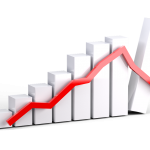The New Normal – the rise of business with purpose

The main consequence of COVID 19 has been to expose cracks in our society and institutions. Where weaknesses existed previously, the strains of the pandemic have blown those cracks apart so those shortcomings are now clearly visible. The way corporations engage with society is one of those so exposed.
Many changes have been made in response, and there are more are to come. Some will disappear (hotel quarantine, lockdowns, lockouts). Others will stay, and one of these changes will completely alter the way we approach business.
Business with purpose
I am referring to a shift from business for profit to business for purpose. People are increasingly realising that they are not satisfied with the results that the 20th Century has given us: pollution, plastic-filled oceans, food that doesn’t taste like food, massive wealth inequality … And now a pandemic. The cracks are showing.
The evolution of Corporate Social Responsibility
You will undoubtedly have heard of Corporate Social Responsibility, and how we all need to have some. That’s our responsibility, as organisations, beyond our immediate economic interest.
The notion of CSR is not new. It started to appear in the academic literature in the 1930’s and 1940’s. CSR mostly took the form of philanthropy – supporting community organisations or donating money. It was designed to improve the organisation’s reputation in the community. If the impact of that increased reputation was increased sales, this was a happy by-product.
Then, almost 60 years ago, the economist Milton Friedman told his readers that:
“there is one and only one social responsibility of business — to use its resources and engage in activities designed to increase its profits …”
This line of thought took hold and dominated the following decades. The practice of CSR was mostly limited to philanthropy.
But times are changing, and that attitude is changing. We now value businesses with purpose – those with a strong, believable “why” that has a positive impact upon society. It is no longer sufficient to have some nice-sounding words on your boardroom wall, website and in your annual reports. Today’s customers and investors have a laser-like vision and can see through that thin veneer of words.
There were companies that did not exactly act with honour during the COVID-19 pandemic. We noticed. Similarly, many companies behaved badly during previous crises. Then there are those that behave badly most of the time. All these companies are on consumers’ watchlists.
Of course, there were many more organisations that acted with empathy and responsibility during the pandemic. These are the companies that will be remembered by their customers, suppliers and stakeholders. These are the ones that will prosper. What today’s customers, employees and investors are looking for is organisations that truly embed social responsibility into everything they do, in every part of the organisation.
The financial advantage
Operating with purpose is also financially rewarding. Multiple investigations, academic research projects and industry surveys tell us this is so. The science is in. Organisations with that strong, believable “why”, and follow that purpose with socially responsible and sensitive actions are more likely to attract customers and suppliers. Approximately 25% of global investment funds are allocated by looking at “social purpose”.
Your workforce
You are no doubt aware of the global skills shortage. Australia is not meeting its demand for highly-skilled professionals, and you are probably already experiencing the effects in your own business.
Millennials are our new workforce, and they don’t want to work for companies without a social purpose. In fact, many would prefer to take a pay cut rather than work for a company that conflicts with their own values.
Thirty years on
Typically, a major trend such as I am describing takes approximately 30 years to move from first emergence to widespread adoption. Think the telephone, TV and the internet. (The internet first showed up in the early 1990’s. Now we can’t live without it).
These big trends first appear in the fringe press, thought leaders, and amongst groups of early adopters. Gradually, it starts appearing in the mainstream press. Eventually it becomes part of our normal, and we can’t imagine life without it.
So what was happening about 30 years ago that would lead us to look for such a big social change now? In the late 1990’s and early 2000’s we saw, amongst other shifts, the United Nations adopt the Millennium Declaration and the Millennium Development Goals. We were thinking about the earth as a whole, and CSR had finally made it into a form we would recognise today. Since then, questions about the role of corporations in society have been arising more and more often. Then, in 2019, 180 of the world’s largest corporations joined the chorus with their “ Statement on the Purpose of a Corporation”. The Statement declared that profits for shareholders is no longer the most important task of companies.
A competitive advantage?
Despite that declaration by the world’s biggest companies, the big end of town here in Australia is just starting to cotton on. (BHP is one of the local leaders). Market share can change quickly in times of upheaval, and this huge shift leaves a clear patch for astute small and mid-sized businesses to seize. Your customers and financiers are watching and waiting.
What does the ‘new normal’ look like for your business?
Post a comment on First 5000 – Have your Say on LinkedIn today or email editor@first5000.com.au with your story.
Bronwyn Reid is an author, business mentor and educator. A serial small business owner who has started three award-winning businesses from Regional Queensland, Bronwyn has proven to herself (and others) that being a small business owner in a regional area is actually a valid lifestyle choice. Bronwyn now combines her two main drivers – education and small business success (particularly in regional areas), through my speaking, writing, workshops, training programs, and advocacy. Her first book Small Company, Big Business, highlights the relationship between big companies and their small company suppliers and her second book, Small Company, Big Crisis: How To Prepare For, Respond To, And Recover From A Business Crisis takes on the theme – creating sustainable businesses.








